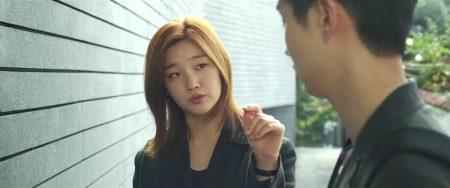| February 12, 2020 | Dang Le | managing editor |
|---|

Far from sugar coating the reality, “Parasite” paints a brutal image of class struggle, not just in South Korea but everywhere. With a little bit of thriller, a touch of comedy and Bong Joon-ho’s one-of-a-kind talent, the movie is one to remember forever.
This is a story about two families — the poor Kim family and the privileged Park family. The Kim family lived dead-broke under a basement in Seoul. They would find free Wi-Fi from other coffee shops and fold pizza boxes for a living. One night, the son Kim Ki-woo’s friend, told him about a job as an English tutor for the Parks’ daughter.
With no certification, no experience and a photoshopped college degree made by his sister, Kim Ki-jeong, Ki-woo masterfully tricked Park Yeon-geo, the rich but naive mother. Ki-woo eventually came up with multiple plans to eliminate any worker in the Park family. It didn’t take too long for the entire Kim family to work inside the Park’s home, taking care of cooking, driving and teaching.
People living in poverty often get told it’s because they didn’t try hard enough. Society praises manners, but when someone is too poor and hungry, will manners keep them alive?
In the movie, the rich would always treat people nicely and smile at every chance. They never scolded anybody, and they wouldn’t hurt anybody. But when the father of the Park covers his nose while in the car with the father of the Kim, it cuts deep. The rich may be the victim in this story, but they are not innocent.
Then, the poor try to escape that dank basement with all tactics, because “nice guys finish last.” In “Parasite,” the Kims came up with dirty tricks to get what they want. They were greedy, crafty and a bunch of liars. They are the criminals, but viewers can’t hate them.
With the title “Parasite,” one may have suggested that this could be a sci-fi movie. Instead, the South Korean film is a thriller drama that leaves people wondering about its title.
The poor parasitize the rich. If this were a simple relationship of employee-employer, there would be nothing to discuss. However, the Kims waited until the Parks went on a family trip, then they would eat all the food, drink all the wine and use all the luxurious conveniences in the house.
But the rich also parasitize the poor. With the Park family, the father was always working, the stay-at-home mother couldn’t do anything. From cooking, cleaning, and teaching, to finding time with her kids, she couldn’t keep up. So she hired a low-class female to help her.
But the Park Yeon-geo would throw a party for her son. She told her workers to keep secrets about all the bad things that happened in her house. What if people learned her driver has sex with a random girl in her husband’s car, or that her housekeeper has tuberculosis? People would laugh at her.
When the driver asked her husband if he loved his wife, he merely laughed. He even preferred to eat dinner elsewhere over with his family.
The Kims, who, while imperfect, still ate, lived, enjoyed life and maybe… did illegal things together.
Throughout the movie, Bong Joon-ho used many inanimate objects: the rock, the difference between how to get into the two houses, all the furniture in the Parks’ household or the basement to draw a contrast between the living style of social classes.
What highlighted Bong as a fantastic director was to combine comedy with the overdramatic slow-motion scenes, narrating with the voice of Kim Ki-jeong to build the fast-paced tension for the movie. In 132 minutes, the film did not feel like it dragged. Instead, the longer it went, the more the audience got hooked into Bong’s masterful storytelling skill.
All of that leads to a wicked but satisfying and unforgettable resolution. Bong was able to share perspectives on class struggle using the Kim and the Park family. Speaking of which, the Kims lived off of the Parks, is it Bong’s way of saying North Korea lived off of South Korea?





































